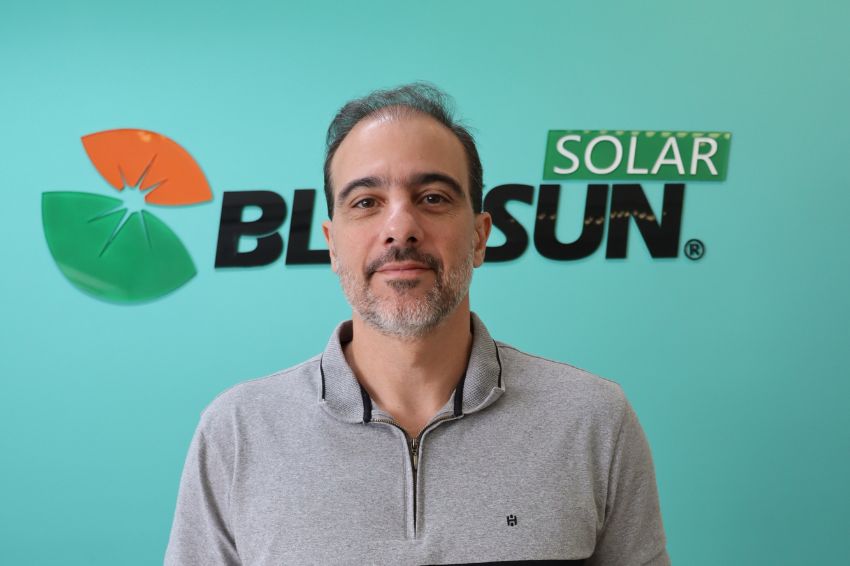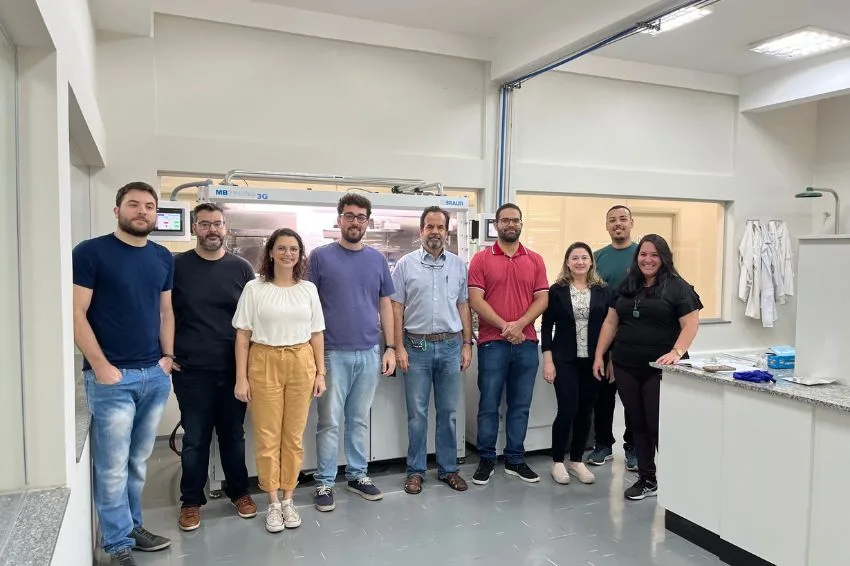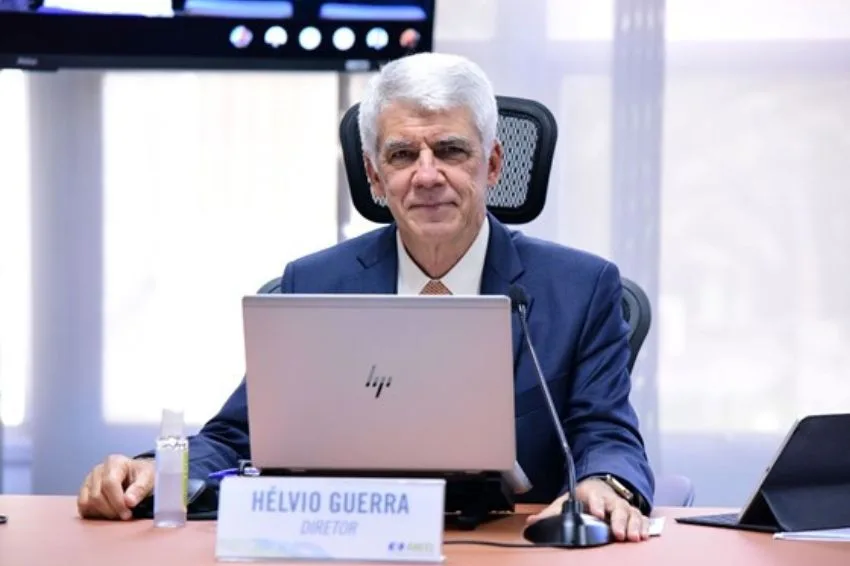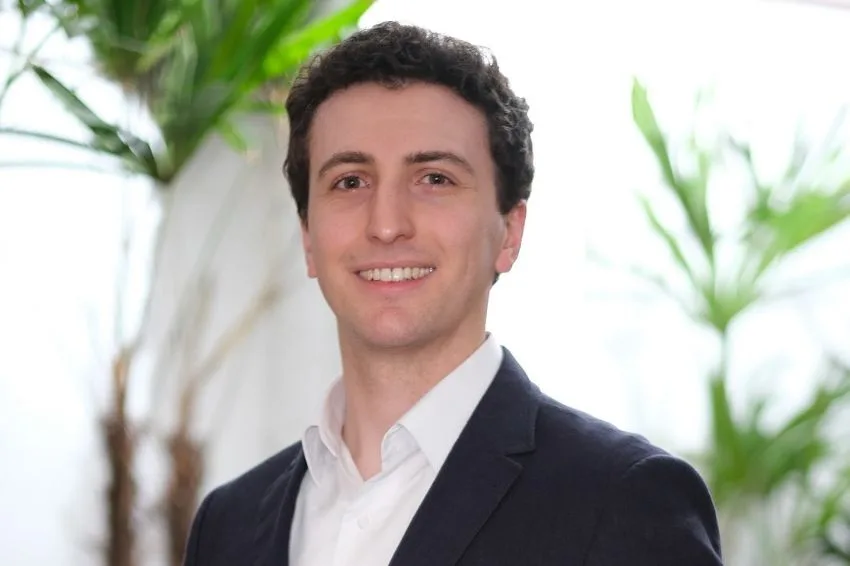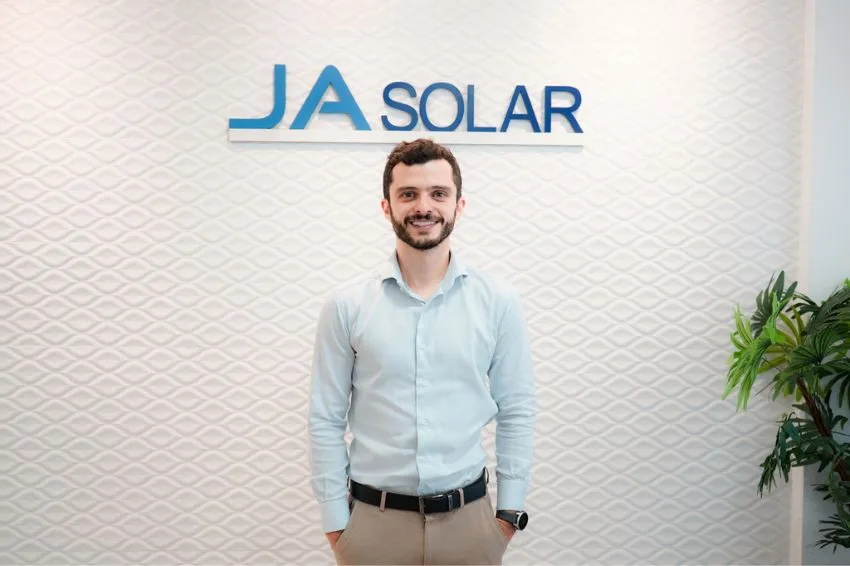A training it is a differential to make professionals and companies get ahead and be able to consolidate themselves in the solar energy market.
AND what the engineer said Ricardo Mansour, founding partner of Bluesun from Brazil, one of the most consolidated distributors of photovoltaic equipment in the national market, in another weekly and exclusive interview from Solar Channel with professionals in the solar sector.
During the conversation, topics were also discussed about the importance of integrators knowing the benefits of Law 14,300, as tmarket trends that have been observed by Bluesun for the remainder of the year, the importance of the automation process within the sector, among other topics.
Check it out below the main excerpts of the interview.
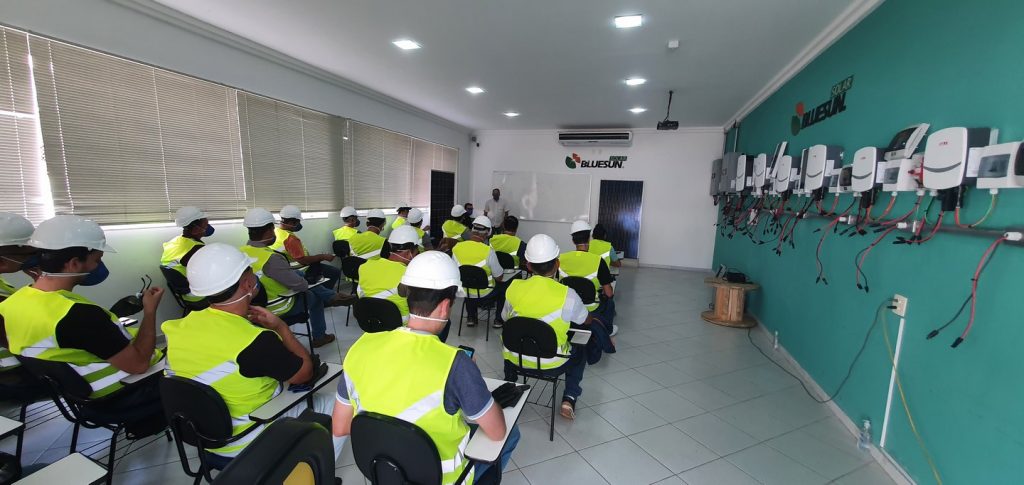
How has Bluesun prepared itself to keep up with the changes that have been occurring in the national sector?
Bluesun has always invested in the academic area. We believe that training is the best way for the sector to grow responsibly. The technology must arrive at the customer's door with clear information and quality installation. This way we can disseminate the technology in a positive way.
The changes in the sector with Law 14,300 are a great example of this and Bluesun has been bringing content, participating in lectures, producing lives, placing materials on its platform, including calculations to help our integrator partners better understand the changes and be able to apply them correctly technologies.
It is important that the integrator knows the benefits that Law 14,300 brought to the sector, and thus clarify with total transparency for end customers in the residential, commercial, industrial and rural/agribusiness markets.
On our platform we highlight some points, such as: legal security for consumers, end of double charging of the minimum fee and the transfer of surpluses by priority (by percentage and order of use).
In conversation with our engineer Jorge Caparroz, responsible for our large power plants sector, we share the opinion that GD's Legal Framework demonstrates maturity and will bring more professionalization to the market.
What technologies and market trends have been observed by Bluesun for 2023 and the coming years? Should some of them stand out above the others?
The Covid-19 pandemic has immensely affected the entire global economy and the production chain. In our market, it was felt mainly in electrical and electronic components, that is, in inverters.
The scarcity of semiconductors that are applied in many segments has caused a lack of one of the most important components, which are IGBTs, especially in larger models.
It is concluded that the objective then was to keep the “wheel turning”, perhaps it was unthinkable to imagine any investments, including in technology in this scenario. However, solutions are also created in difficulties, and we have made significant advances in our market.
Regarding photovoltaic modules, we saw significant advances in the development of technologies that accelerated from 2018, with the transition from polycrystalline or monocrystalline cells to mono PERC.
The adoption of half cells, glass-glass bifacial modules, the introduction of multi-busbar devices, the move to larger wafers – 166 mm, then 182 mm and then 210 mm – the emergence of P-type wafers doped with gallium to reduce degradation, and, more recently, the emergence of N-type cells, predominantly n-TOPCon.
When I think about technology development, I see a very important point, which is product and user safety, but unfortunately it is not always prioritized.
Even if we think in a purely commercial way, a remarkably reliable product will bring security for the customer to invest and more strength for our sector. The inverter manufacturer SAJ, which has a long partnership with Bluesun, has always invested in technologies to also deliver reliable products with an excellent level of safety.
SAJ was one of the first manufacturers of photovoltaic inverters to invest in the production of hybrid models, starting production in 2015, which gives it the necessary credibility to stand out on the global stage, especially with its All-in-One model on the market. European.
SAJ's new series of SAJ All-In-One inverters, the HS2, which according to Mr. André Vieira Valvezan, Country manager of SAJ in Brazil, will soon arrive in Brazil presenting high efficiency and offering support for AFCI, UPS and RSD, bringing a safer, smarter and more reliable energy storage experience to end users, in addition to the DC side oversizing of 150% and AC side oversizing of 110%.
I highlight the RSD (Rapid shutdown Device) safety functions, which de-energize rooftop solar energy systems in the event of a fire, thus protecting firefighters and first responders from exposure to live wires.
And the AFCI function, which provides a reliable guarantee for the safety of photovoltaic systems against electrical arcs, which are the main cause of fire in solar energy systems. By identifying the characteristic signs of an electrical arc forming in a circuit, AFCI disconnects the photovoltaic panels before the arc fault turns into a fire.
Even though it is not mandatory in Brazil, it is important highlight that Bluesun had already agreed with SAJ for the AFCI function to also be incorporated and enabled in all of our on-grid inverters.
The philosophy, together with our partners who share it, is to always seek to anticipate in offering not only cutting-edge technology and operational ease, but also maximum security for both users and integrators.
Regarding storage systems, the development of some technologies is again related to Law 14,300, as with the changes, some of them are beginning to be more widely discussed.
Storage is undoubtedly on the agenda, however I don't see a large volume of batteries in the short term, especially this year. The investment is still significant, mainly because we naturally compare it to an on-grid system, which is obviously a mistake.
Mainly within microgeneration, there is little practical change in the law that justifies the investment when we think about the purely financial return.
Regarding chargers for electric and hybrid cars, they are gaining ground in Brazil, with the city of São Paulo since March 2021, for example, requiring new residential and commercial condominiums to provide charging stations, with independent measurement of consumption.
Other aspects of this market are opening up, such as station rental and management software. It is worth highlighting that when we talk about hybrid cars and especially 100% electric ones, we think about sustainability, therefore the energy source for charging these vehicles should be clean and renewable, photovoltaics fit perfectly in parking lots with panel coverings for this purpose, in fact they are technologies that are intrinsically linked.
In the same way as hybrid storage systems, there is still little representation in the market when we think about volume, but the growth is noticeable. In 2022, Brazil surpassed the barrier of 100 thousand registered electrified vehicles, closing the year with a total of 126 thousand units.
According to ABVE (Brazilian Electric Vehicle Association), around 49,245 electrified models (100% electric, plug-in and hybrid) were registered in Brazil, that is, we had an increase of 41% compared to 2021
The search to reduce CO2 emissions, also due to international agreements, Europe's concern, mainly due to the war between Russia and Ukraine, we will certainly continue to focus on alternative sources of clean energy and therefore investments in the sector.
Regardless of the speed of advancement of these technologies, variables in the face of changes in economic, geopolitical and research scenarios, we are attentive to the opportunities that the market is bringing us.
Bluesun is known for importing solar photovoltaic products such as solar modules and inverters, mainly from China. How have you been monitoring the price volatility of these technologies in the Brazilian market?
There are several materials and equipment that are produced abroad, subject to market conditions that vary, including due to the volatility of foreign currencies, and as everyone knows, we have faced high exchange rate volatility.
Bluesun has very well designed strategies for exchange rate protection, as we are known in the market for the low price variation in our products.
Silicon, the raw material for polysilicon, has a value that represents around 60% of the cost of photovoltaic modules. Monitoring the variation of this component is, therefore, essential to understand the price behavior of modules and trends in the solar photovoltaic market.
Solar modules represent around 70% of a photovoltaic system, and as they operate in a similar way to commodities, we must be aware of global scenarios in terms of supply and demand.
Other factors that bring price volatility to solar photovoltaic products are the increase in the price of international transportation. As stated above, due to the Pandemic we had a shortage of semiconductors and other components on the international market, and the effects are still being felt.
Bluesun has a qualified team to plan your imports with well-defined strategies, this is one of the crucial points for us and that is why we invest in our import sector.
From evaluating volumes, product pricing, freight and freight forwarding partners, tax analysis and fees. All this work aims to always keep our stock in Brazil supplied at competitive prices, even with many challenges faced, especially in the pandemic, we are proud to have achieved this objective and more, to have market recognition.
What is Bluesun's concern with the technical quality of its products? What criteria does the company use to choose its business partners?
Bluesun has well-defined criteria and pillars for evaluating a supplier. One of the important points is bankability, which is a classification among equipment manufacturers, whether modules or inverters, involving financial data, production capacity, and attests to the company's ability to meet equipment warranties, as solar projects employ equipment with a life expectancy of 25 to 30 years.
There are suppliers who have insurance, covering the guarantees even if the manufacturer may have a financial problem. In terms of technical criteria, suppliers initially need to attest to the technical quality of their products through the certifications required in the international and national markets.
We visited the factories in China to learn about the entire process and hired certifying companies that will issue a report on the entire production and documentation process. Bluesun, which has been in the photovoltaic market for almost ten years, knows very well the most renowned and reliable companies, and this Extensive experience throughout this process contributes to assertiveness in approving our suppliers.
Since the beginning of our operations in the photovoltaic market, we have also had a base in China with employees for any support, including assessment. I highlight two more important criteria for approving equipment, mainly inverters.
One of them is to have structured technical assistance in Brazil, and not only that, Bluesun has direct participation in technical support, this is not negotiable with the supplier. Bluesun, which has always had its bases in the technical area, believes that the difference is providing good after-sales, and having efficient technical assistance is part of this. As an example, Bluesun is authorized by SAJ to provide technical assistance on equipment sold by us.
We have a level 2 repair laboratory, which already covers the replacement of more complex boards and circuits. With the evolution over the years, the Bluesun quick change process is being implemented, our integrator will be assisted when the SAJ inverter defect is detected with surprising agility.
Because we have technical know-how and our own laboratory, every inverter undergoes standardized tests at Bluesun, which in addition to being required in extreme situations, is dismantled for construction and component evaluation.
You have experience in automation. In your opinion, what is the synergy between automation and solar energy?
Automation is closely linked to solar energy, from its production process to the various applications and solutions within the sector. Due to my training and professional work over the years, I remain involved in our technical and engineering area, seeking to discuss the various possibilities and interactions to add technologies. Together with engineer Jorge Caparroz, who also has extensive experience in the automation area, I share some points to highlight:
The first of these is in relation to the residential segment (smart homes), in which home automation is often remembered only as a comfort item, bringing greater practicality to our routine. However, greater control over these routines brings us greater energy efficiency, translated into savings in energy consumption.
The controlled use of energy will result in a more appropriate investment in a photovoltaic system and will reduce your Payback. With the legal framework, where it is more interesting to have greater simultaneity (consumption x injection), defining the customer's energy profile and controlling consumption will be even more important, and therefore widespread.
Another point that I highlight is its use in the commercial and industrial segment, in which BMS Automation (Building Management System) monitors, through software, information collected by sensors distributed throughout the building, allowing for less expenditure on electricity and water consumption between others, being able to form a great partnership and integration with the photovoltaic system.
Finally, another point that I highlight is its use in the rural and agribusiness segment, in which we know that the photovoltaic system has been widely applied. As an example, energy savings in central pivots for irrigation using an on-grid system, which, through automation, can operate in conjunction with a diesel generator, thus maintaining the equipment's operation in any weather situation.
I have no doubt that with the advancement of storage technology and decreasing costs, diesel generators, which have high maintenance costs, could be replaced by battery banks. Still within irrigation via central pivot, we can have sprinkler or drip control, use of a sensor for soil humidity, weather station for climate assessment defining whether or not the soil should be irrigated.
Photovoltaic plants in general, especially large ones, need to be monitored and managed. Various causes can impact generation outages, such as dirt on the solar panel, possible unforeseen or subsequent shading after installation, equipment failure (mainly inverters), hot spots in the module cell, etc.
A supervisory system for analyzing photovoltaic solar plants aims to detect these failures, using DC and temperature sensors, reliable meteorological data such as INMET, monitoring the modules' bypass diodes, detecting possible shading, among others.


